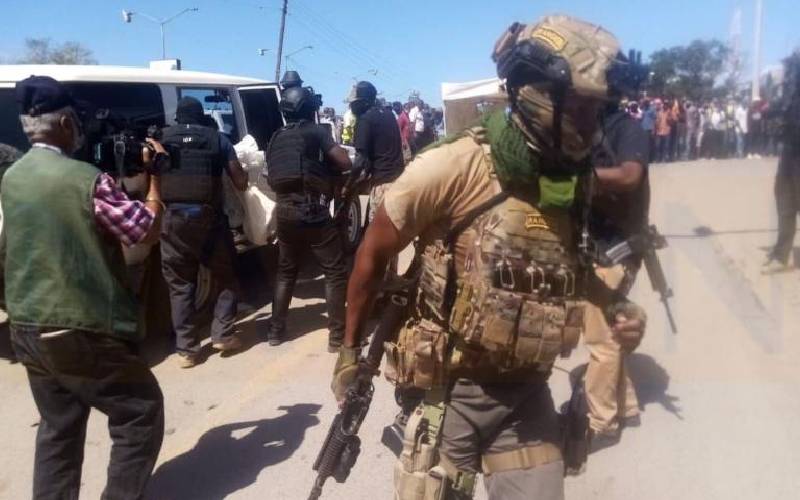×
The Standard e-Paper
Smart Minds Choose Us

ATPU officers nab alleged terror suspects at Likoni Crossing Channel, Mombasa County. [Courtesy]
Kenyan security agencies arrested two terror suspects in Likoni, Mombasa on August 23. Two days later, their Ugandan counterparts arrested suspected terrorists at the burial of Major General Paul Lokech who served as a commander of Amisom troops in Somalia.